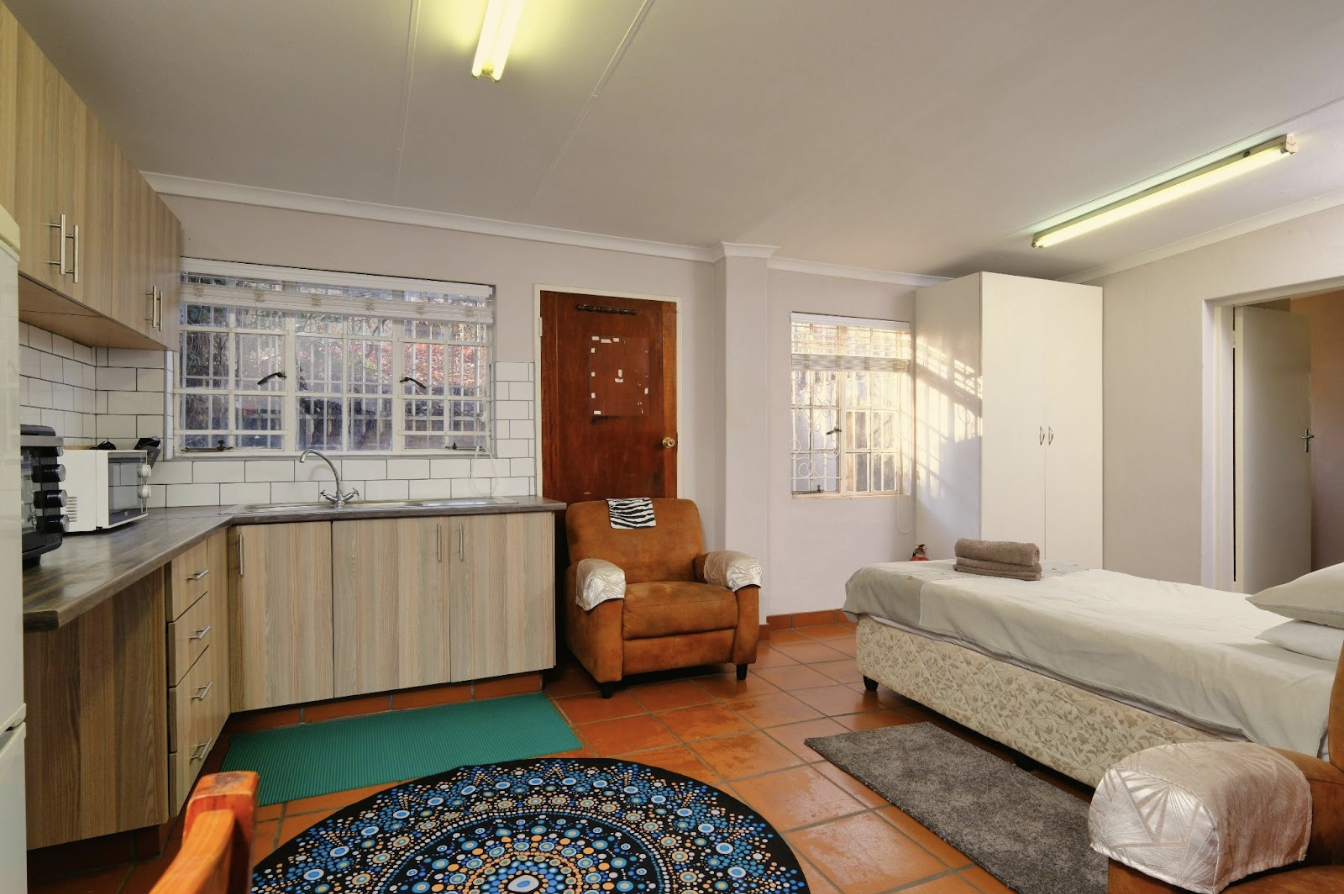Accessory Dwelling Units (ADUs) have emerged as an innovative solution to meet the increasing demand for housing in many regions, including Fairfax, Virginia. ADUs are smaller, self-contained living spaces situated on the same lot as a primary residence. They provide homeowners with the opportunity to rent out space, accommodate extended family members, or increase property value. However, as beneficial as these units can be, navigating the zoning laws and permit requirements can be a complex process. In Fairfax, like many cities across the United States, local zoning regulations and building permits play a critical role in the development of ADUs. This article explores the specifics of Fairfax ADUs, highlighting how to successfully navigate local zoning rules, understand the necessary permits, and build an ADU that meets all legal requirements.
Understanding the Fairfax ADU Landscape
Fairfax, a vibrant city located in Northern Virginia, has seen a growing interest in Accessory Dwelling Units as a means to address housing shortages and boost the local economy. The flexibility of ADUs makes them an appealing option for homeowners seeking additional rental income, or for families in need of separate living spaces for aging parents or adult children.
Local zoning laws, however, regulate where and how these units can be built. ADUs may be permitted on residential properties in some zones but not others, and the type of ADU (detached, attached, or conversion) may affect what is allowed. Additionally, the size of the unit, setbacks from property lines, parking requirements, and overall design can all be influenced by zoning regulations.
What is an ADU?
Before delving into Fairfax’s specific regulations, it’s important to define what an ADU is. An Accessory Dwelling Unit is a secondary housing unit on a single-family residential lot that provides independent living space. ADUs can come in various forms:
- Detached ADUs: Separate buildings located on the same lot as the main house.
- Attached ADUs: Units that are physically attached to the primary residence, such as a basement apartment or a garage conversion.
- Internal ADUs: Often referred to as "in-law suites" or "granny flats," these units are created within the existing space of the main residence.
ADUs offer a variety of benefits, including affordable rental options, multi-generational living opportunities, and additional living space. However, constructing one requires careful attention to zoning rules, building codes, and permits, which differ by locality.
Fairfax’s Zoning Regulations for ADUs
Fairfax County’s zoning regulations, which govern the development of ADUs, are designed to ensure that the growth of these units is both safe and compatible with the surrounding neighborhood. These regulations are enforced by the Fairfax County Department of Planning and Development (DPD). To start, homeowners must first determine whether their property is in an area where an ADU is permitted. In Fairfax, most residential properties are zoned for ADUs, but restrictions may apply based on factors such as lot size, location, and the specific type of ADU.
Key Zoning Considerations
- Zoning Districts: The Fairfax County Zoning Ordinance divides the county into different zoning districts, and the rules for ADUs can vary by district. For example, properties zoned R-1, which is the district for single-family homes, are typically eligible to build ADUs, though additional conditions may apply. Some districts, like R-2 or R-3, may also allow ADUs, but certain restrictions regarding size and use might exist.
- Lot Size: One of the primary requirements for building an ADU is having a sufficiently large lot. Fairfax requires a minimum lot size for an ADU, which is typically 7,500 square feet for a detached unit. The larger the lot, the more likely it is that an ADU will be allowed. Properties with smaller lots may face greater restrictions on the size or type of ADU they can build.
- Setbacks and Location: Setbacks refer to the required distance between the ADU and the property boundaries (such as the front, side, or rear property lines). Fairfax County generally requires a minimum setback of 10 feet from the rear property line and at least 5 feet from the side property lines for detached ADUs. If the ADU is attached to the main residence or an existing structure, setback requirements may be more lenient, but the unit still needs to comply with other aspects of zoning, such as height and scale restrictions.
- Height Limitations: The height of an ADU can be a significant consideration in the zoning process. In Fairfax, the maximum height for a detached ADU is typically 18 feet, though this can vary depending on the zoning district. The height limitations are meant to ensure that ADUs do not overwhelm the existing neighborhood and maintain the character of the area.
- Parking Requirements: Fairfax zoning laws also typically require at least one parking space for each ADU. In some cases, the ADU’s location and proximity to public transportation may reduce this requirement. For example, properties near bus stops or metro stations may not need to provide an additional parking space if the area is well-served by transit.
- Usage and Occupancy Limits: ADUs are primarily intended for residential use, and Fairfax imposes limits on who can live in the unit. Generally, an ADU can house a maximum of two people, though this can vary depending on the type of unit and whether it is an in-law suite or a rental unit.
Get a Quote for your ADU project
Obtaining ADU Permits in Fairfax

Once a homeowner confirms that their property is eligible for an ADU, the next step is to apply for the necessary permits. In Fairfax, several types of permits and approvals are required to ensure that the construction of an ADU meets local building codes and zoning requirements. These include:
1. Zoning Approval
Before applying for building permits, homeowners must first obtain zoning approval for their ADU project. The zoning approval process ensures that the proposed ADU complies with the county’s zoning ordinances, including lot size, setback requirements, and parking requirements. Homeowners may need to submit a zoning permit application, which typically includes:
- A plot plan that shows the location of the existing house and the proposed ADU.
- Details about the design and layout of the ADU.
- Evidence that the ADU complies with all zoning requirements.
2. Building Permits
After zoning approval is obtained, the next step is to apply for building permits. Fairfax requires a building permit for any new construction, including ADUs. The building permit ensures that the ADU will be constructed according to the county’s building codes, which are designed to ensure safety and structural integrity. Building permits generally require the following documentation:
- Architectural drawings and structural plans for the ADU.
- Specifications for materials and construction methods.
- Evidence of compliance with local building codes, including electrical, plumbing, and mechanical systems.
3. Homeowners Association (HOA) Approval
If the property is part of a homeowners association (HOA), the homeowner must also obtain approval from the HOA before moving forward with the ADU construction. Many HOAs have their own set of rules and regulations regarding the appearance and construction of structures within the community. It is important to check the HOA’s guidelines to ensure that an ADU is allowed and that the design complies with community standards.
4. Final Inspection
Once the ADU is constructed, a final inspection is required to ensure that the unit complies with both the zoning and building requirements. This inspection typically includes checking the ADU for code compliance, verifying that utilities are properly installed, and ensuring that the structure is safe for occupancy. Once the final inspection is passed, the homeowner can obtain a Certificate of Occupancy, which permits the ADU to be used as a rental unit or for other intended purposes.
Challenges in Building an ADU in Fairfax

Although building an ADU in Fairfax offers significant benefits, such as increased property value and the potential for rental income, there are also several challenges that homeowners should consider before beginning construction.
1. Cost of Construction
The cost of building an ADU in Fairfax can vary widely depending on the size, design, and complexity of the project. On average, the cost of building an ADU in Fairfax can range from $100,000 to $250,000 or more. This price includes materials, labor, permits, and fees, as well as any additional costs for utilities and site preparation. Homeowners should factor in these costs when planning their ADU project and explore financing options, including home equity loans, personal loans, or special ADU financing programs.
2. Permit Delays
The permitting process can be time-consuming, and delays are not uncommon. Homeowners may face delays in obtaining zoning approvals or building permits, particularly if their proposed ADU doesn’t conform to certain regulations or if there is a backlog of permit applications. Homeowners should plan ahead and be prepared for potential delays in the construction timeline.
3. Neighborhood Resistance
Some neighborhoods in Fairfax may resist the construction of ADUs, especially in areas where large, single-family homes are the norm. Neighbors may express concerns about the potential impact of an ADU on property values, parking availability, or the overall character of the community. Homeowners should be prepared to engage with their neighbors and address any concerns they may have about the proposed ADU.
Closing Remarks
Building an ADU in Fairfax can be an excellent way to increase property value, provide housing options, and create additional rental income. However, it is crucial to navigate the local zoning regulations and obtain the necessary permits to ensure the success of the project. By understanding Fairfax’s zoning laws, obtaining the required approvals, and addressing challenges proactively, homeowners can successfully build an ADU that meets both their needs and local requirements. Whether for family use or rental purposes, Fairfax ADUs represent a promising opportunity for homeowners seeking to enhance their properties in a dynamic and growing region.



